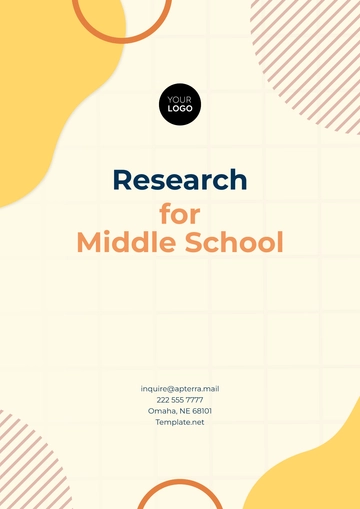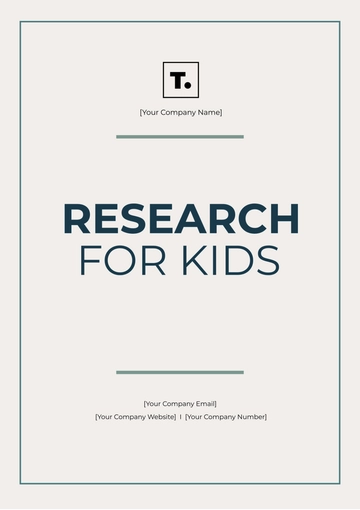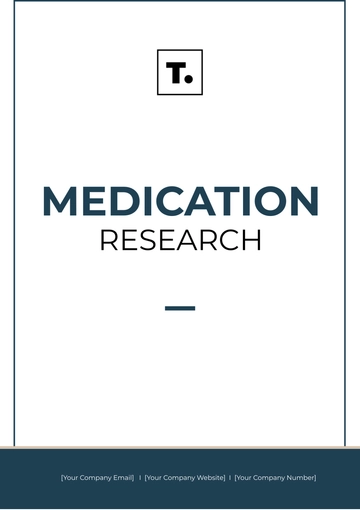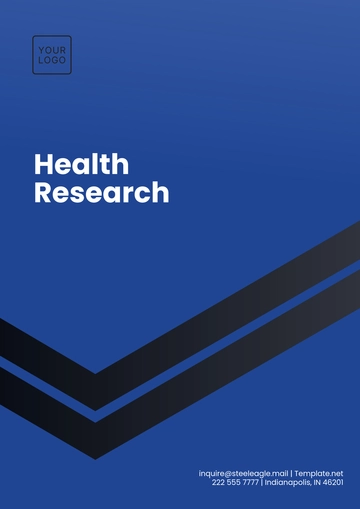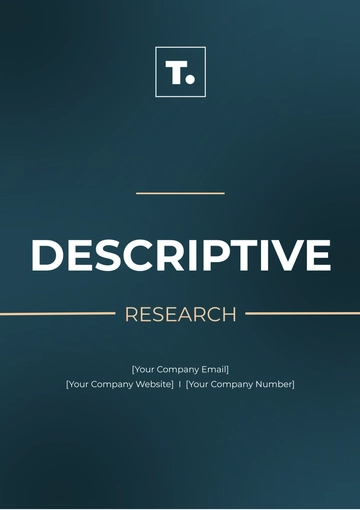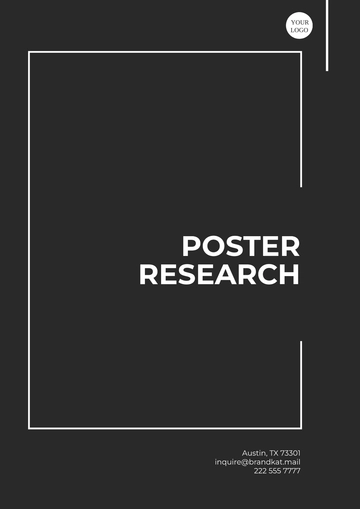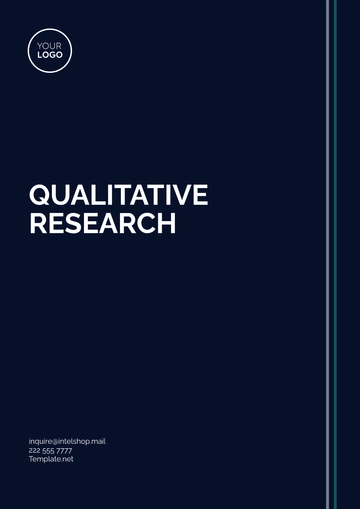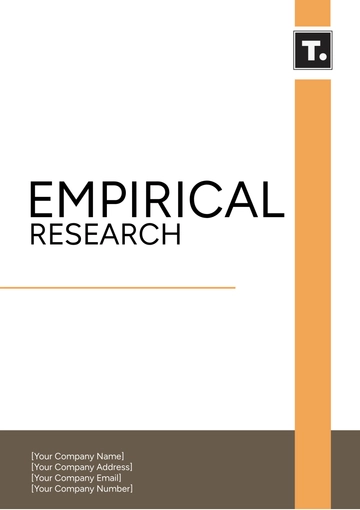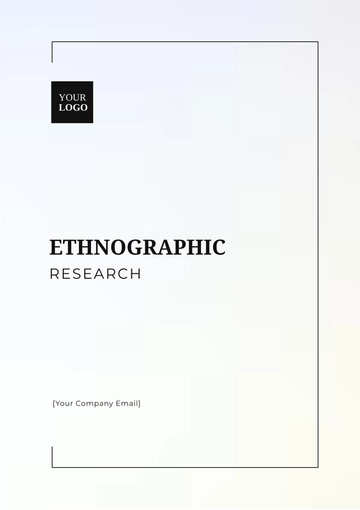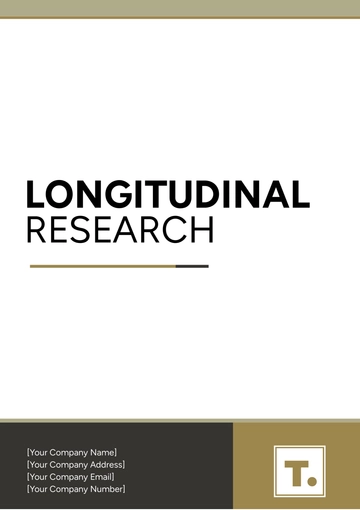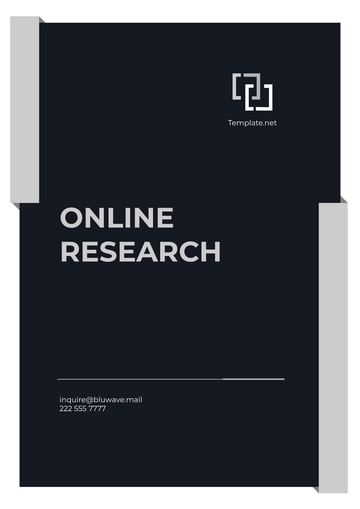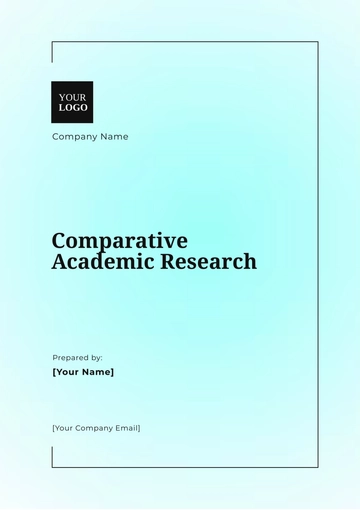Free Ethical Dilemmas Research Process
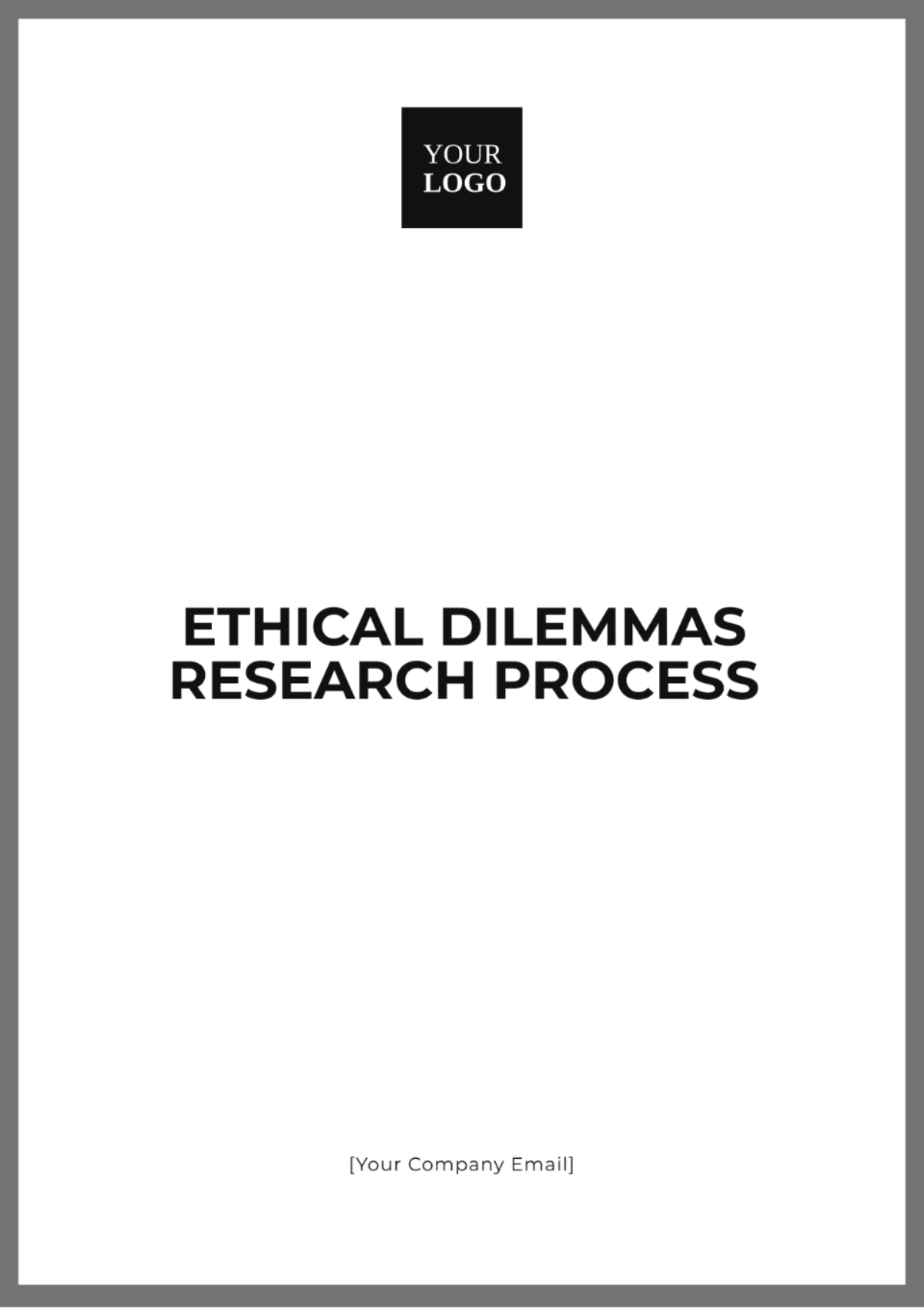
Prepared By: [YOUR NAME]
Date: [DATE]
I. Introduction
The purpose of this Ethical Dilemmas Research Process is to provide a structured approach for identifying, analyzing, and resolving ethical challenges that may arise during research activities. This process is designed to uphold the highest ethical standards, ensuring that research is conducted with integrity and respect for all participants.
II. Ethical Principles and Guidelines
Ethical research is guided by fundamental principles designed to protect the rights and well-being of participants. These principles include:
Respect for Persons: All research activities must respect the autonomy of individuals, ensuring that informed consent is obtained and that participants are treated with dignity and respect.
Beneficence: Researchers must strive to maximize potential benefits and minimize harm to participants. This includes careful consideration of the risks and benefits associated with the research.
Justice: The distribution of research benefits and burdens must be fair and equitable. Special attention must be given to ensuring that no group is disproportionately burdened or excluded from the benefits of research.
Integrity: Researchers must conduct their work honestly and transparently, avoiding any actions that could be considered deceptive or fraudulent.
III. Identification of Ethical Dilemmas
Identifying ethical dilemmas involves employing a variety of different methods and approaches:
Initial Screening: Research proposals are initially reviewed to identify any potential ethical issues. This includes assessing the research design, methods, and participant interactions.
Stakeholder Consultation: Researchers engage with stakeholders, including potential participants and community representatives, to identify any concerns or potential ethical issues.
Ethical Risk Assessment: A thorough risk assessment is conducted to evaluate potential ethical risks related to privacy, consent, and harm. This assessment helps to identify and categorize potential ethical dilemmas.
IV. Assessment and Analysis
Ethical Frameworks: Established ethical frameworks, such as the Belmont Report principles of the Nuremberg Code, are used to analyze identified ethical dilemmas. These frameworks provide a basis for evaluating the ethical implications of the research.
Impact Analysis: The potential impact of ethical issues on participants, researchers, and the overall research outcomes is analyzed. This includes evaluating both short-term and long-term effects.
Legal and Regulatory Compliance: The research is reviewed for compliance with relevant laws and regulations governing research ethics. This ensures that all legal requirements are met.
V. Decision-Making Process
Consultation with Ethics Committees: For complex ethical dilemmas, consultation with Ethics Committees or Institutional Review Boards (IRBs) is sought. These bodies provide expert guidance on ethical decision-making.
Risk-Benefit Analysis: A comprehensive analysis is conducted to weigh the potential risks against the expected benefits of the research. This helps to determine the most ethical course of action.
Informed Consent: Ensuring that participants are fully informed about the research and its potential risks is a critical part of the decision-making process. Informed consent must be obtained from all participants.
VI. Implementation and Monitoring
Ethical Guidelines Implementation: The ethical guidelines and decisions made during the process are implemented in the research. This includes integrating ethical considerations into the research design and execution.
Ongoing Monitoring: Continuous monitoring is conducted to ensure compliance with ethical standards throughout the research. This includes regular reviews and assessments.
Adjustments and Corrections: If new ethical issues arise or if compliance is not met, necessary adjustments and corrections are made to address these concerns.
VII. Reporting and Documentation
Documentation: Detailed records are maintained of all ethical considerations, decisions made, and actions taken. This documentation serves as a record of the ethical process and helps to ensure transparency.
Reporting: Transparent reports are provided to Ethics Committees, funding agencies, and other stakeholders as required. These reports outline the ethical aspects of the research and any issues encountered.
Outcome Tracking: The outcomes related to ethical issues are documented and analyzed to inform future research practices. This helps to improve the ethical process over time.
VIII. Review and Revision
Periodic Review: The Ethical Dilemmas Research Process is reviewed periodically to address new ethical challenges and incorporate feedback. This ensures that the process remains current and effective.
Update Guidelines: Guidelines and procedures are updated based on emerging ethical standards and research practices. This includes revising the process to address new developments in research ethics.
Feedback Integration: Feedback from researchers, participants, and Ethics Committees is incorporated to enhance the ethical process. This helps to ensure that the process remains relevant and responsive to new ethical concerns.
References
Johnson, A., & Smith, R. (2052). Advancements in Research Ethics: Navigating Emerging Ethical Dilemmas. Future Research Press.
Williams, L., & Patel, M. (2055). Ethical Innovations in 21st Century Research: New Guidelines and Practices. Horizon Academic Publishers.
Brown, C., & Lee, T. (2058). Ethics in a Technologically Advanced World: Challenges and Solutions. Modern Ethics Publications.
- 100% Customizable, free editor
- Access 1 Million+ Templates, photo’s & graphics
- Download or share as a template
- Click and replace photos, graphics, text, backgrounds
- Resize, crop, AI write & more
- Access advanced editor
Address ethical considerations with confidence using Template.net's Ethical Dilemmas Research Process Template. This editable and customizable tool is designed to guide researchers through the complex landscape of ethical decision-making. Whether assessing risks or outlining ethical protocols, this template provides a structured approach. Editable in our Ai Editor Tool, it allows for easy customization to align with specific ethical guidelines
